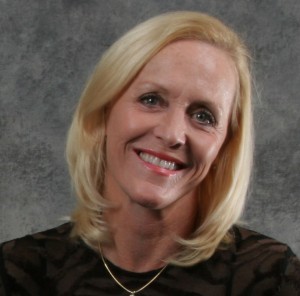 When both her sons became addicted to drugs and ended up in the criminal justice system, Gretchen organized parents to fight against punitive US drug policies and end the “war on drugs.”
When both her sons became addicted to drugs and ended up in the criminal justice system, Gretchen organized parents to fight against punitive US drug policies and end the “war on drugs.”
Tell us a little about your background…
I was raised on an avocado ranch in Escondido, CA with my two sisters. We had a wonderful, secure, and happy childhood. I was a dance major and drama minor at Cal Western University in San Diego. After graduation, I ran my own dance company for a short time, then taught jazz dance for 25 years.
I got married early and had two sons. I was able to work from home much of the time as we converted our garage to a dance studio and I used our backyard pool to teach swimming. I also modeled and ran my own theatrical fashion show company, Gretchen Productions—it’s still active after 35 years. Finally, I spent 7 years as a fashion editor for Décor & Style magazine (now defunct).
I was lucky that I was able to make a living doing the things that I enjoyed, but I loved being a mother most of all. I adored my two bright and beautiful boys—unfortunately, they both became addicted to drugs.
My older son was born in 1971—ironically, the same year that Nixon declared the “war on drugs.” He was kicked out of high school for having marijuana in his locker and was arrested at age 20 for marijuana possession; this started 11 years of his cycling in and out of the prison system for non-violent drug offenses and relapses. My first marriage ended during all this drama, and both of my sons eventually became addicted to heroin.
What is your next act?
 I am the Executive Director and Co-Founder of the nonprofit, A New PATH—Parents for Addiction Treatment & Healing. Our mission is to reduce the stigma associated with addictive illness through education and compassionate support, and to advocate for therapeutic rather than punitive drug policies.
I am the Executive Director and Co-Founder of the nonprofit, A New PATH—Parents for Addiction Treatment & Healing. Our mission is to reduce the stigma associated with addictive illness through education and compassionate support, and to advocate for therapeutic rather than punitive drug policies.
Our goals are three-fold:
- Treatment and rehabilitation instead of incarceration for non-violent drug offenders.
- Rehabilitation and recovery within the prison system if the nature of the crime doesn’t allow for alternative sentencing.
- Transitional programs upon release from prison or recovery homes to prepare them to re-enter society.
How did you come to found A New PATH?
I responded to what I thought could and should be done about a criminal justice system that misunderstands and mishandles addiction. My strong belief in therapeutic rather than punitive justice propelled me forward. I also wanted to shake off the shackles of shame and stigma that are associated with addictive illness by speaking out as a mother—one who had done the best job she could to give her sons every opportunity in life, including swim lessons, guitar and piano lessons, tennis, baseball, soccer, and unconditional love.
I gathered a few parents together after an Al Anon meeting with the idea of having the “courage to change” the things that should be changed—the way our children were being handled and treated like criminals rather than as people who have a disease that can be treated.
In the spring of 1999, when I was 52 and my boys were 28 and 25, two other parents and I created A New PATH. We all have children whose lives have been devastated by the disease of addiction—and further damaged by a society that allowed people with addictive illness to be handled as common criminals. We had a vision of therapeutic justice so we started on a path that would save lives, heal families, and create healthier communities.
When we launched the non-profit, I was flying by the seat of my pants with a lot of passion. I got some advice from people who had non-profits, including NAMI (National Alliance on Mental Illness). While there were originally only three parents in A New PATH, we quickly engaged others. We met with judges and criminal justice professionals because we believed that they needed to hear our stories and our perspective as parents. We then reached out to healthcare professionals, decision makers, and the media.
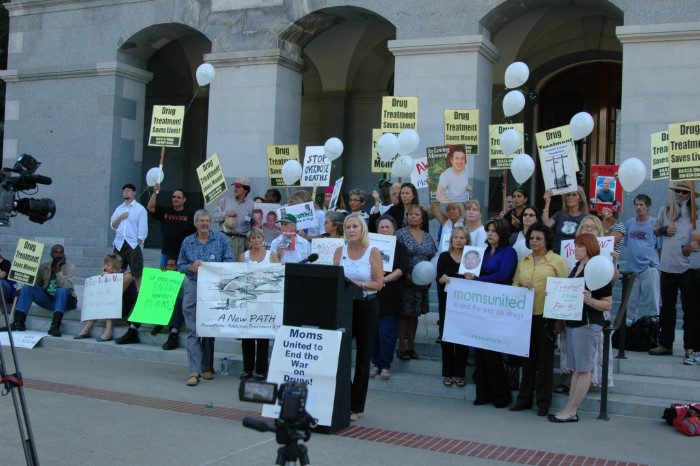
In 2000, I was asked to be State Chairperson for Prop 36 in California, which mandates treatment instead of incarceration for non-violent drug offenses. I had been speaking about our cause in San Diego County, had an article published in the Los Angeles Times, and had reached out to the mothers who passed a similar law in Arizona.
That’s how the Campaign for New Drug Policy, which was leading the charge for the passage of Prop 36, heard about me; they interviewed me then asked me to be State Chairperson in California. In that role, I was the public face of Prop 36, speaking to media and legislators. My older son, who was behind bars at the time, gave me permission to tell his story, so that others might benefit. I am very proud of him for that.
California Proposition 36, the Substance Abuse and Crime Prevention Act of 2000, passed with 60% of the votes. I became involved in the implementation meetings as a watchdog organization to ensure that it was implemented as a public health concern, since it was still driven by criminal justice.
With the passage of Prop 36, while some felt our job was done, I knew that we had just scratched the surface; so much more was needed to reduce the stigma and address the human rights violations connected with punitive drug policies, including sentencing and prison reform.
The success we had with Prop 36 propelled me forward with the understanding that our voices do count and although one voice can make a difference, a whole choir of voices can change the world and make a beautiful sound in the process.
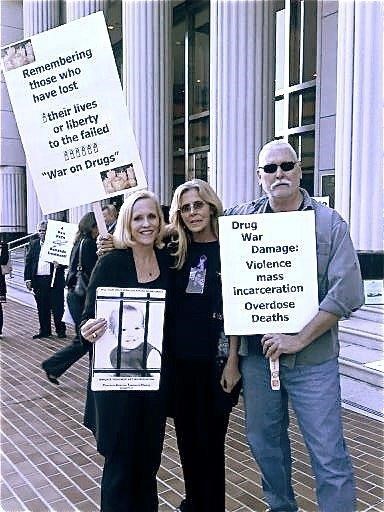
Tell us more about your sons and their journeys…
My sons were raised in an intact home, in a nice neighborhood, with plenty of soccer, music lessons, little league, love, and attention. Unfortunately, both of them began using drugs in their teens, which started them down separate paths that eventually led to heroin addiction, and arrest.
I don’t believe in the gateway drug theory, except that marijuana use is a gateway to incarceration. I believe that adolescents experiment with alcohol and drugs, and that many of them can walk away from it. I believe that my sons have a genetic predisposition to addictive illness, so they got caught up in a maze that they couldn’t find their way out of. There is a long line of addictive illness in their father’s family.
I never really saw it with my younger son, perhaps because I was so involved in the addiction problems of his older brother. He was active on the water polo team, a champion high diver, and performed in a singing troupe and rock band. He graduated from high school and went on to earn a degree in sound engineering (all while using). The damage was more gradual and less dramatic, but still devastating. He actually told me that when he found heroin he found the drug he was searching for his whole life. I couldn’t imagine why he was searching for a drug…was it depression, self-medication for a bad self-image, what?
My younger son’s addiction to heroin has gone on for decades, despite about 10 times in treatment. Although he has been arrested a few times for drug use, he has been fortunate to get mandated treatment in lieu of prison—thanks to the passage of Prop 36. But, at 40 years of age, the ravages of this disease have affected his physical and mental health, so much so we were afraid he would die. He is now 4 months sober and it is wonderful to see my real son reemerge. This should be a hopeful time for us, but old offenses from his past could catch up to him and send him to prison despite his sobriety. It’s very difficult to get out from under the long arm of the criminal justice system. It is all very overwhelming.
The signs with my older son were much more apparent. Several attempts were made to intervene and he was sent to treatment programs in his teens, but he was never ready or able to accept the reality of his disease. A bright student, he was kicked out of high school and gave up everything he loved—surfing, tennis, the dream of being a sports announcer—for his new love, drugs.
He ended up spending several terms in prison because of non-violent offenses related to his drug addiction and relapses. He was caught up in the criminal justice system for 11 years of his young life. Instead of receiving treatment and learning about recovery, he learned the skills to survive in prison. Survival in prison requires a hardening of the heart and a code of silence. He learned to walk the walk and talk the prison talk. Drugs were easily accessible to him behind bars. In fact, he first learned to use a needle to inject heroin there.
I visited him in state prison week after week and helplessly watched as he assimilated into the prison culture, while getting deeper and deeper into his substance abuse and further away from recovery. After months of being warehoused in cells (human storage is what he calls it), he would be released back into society, still an addict, with no job skills and little self-esteem—and now an angry ex-con. What do you think were his chances of returning to prison? And my son is not an isolated case.
Addiction is a powerful, insidious disease. I have watched him nearly die of an overdose only to go right back to the streets to use again, and I have seen him come out of prison further damaged and farther away from the recovery he needs, with little hope of any outcome other than re-exacerbating the problem.
I never intended to become an advocate and activist but, because of my sons’ illness and experiences, I learned to speak out, write about human rights, and mobilize mothers and parents. I assume that if my children had a different disease, I would have learned everything there is to know about that instead.
Why do you believe the war on drugs is not the answer?
Drug addiction is a chronic relapsing disease, and treatment for substance abuse is as effective as treatment for other chronic medical illnesses. But, instead of offering rehabilitation and treatment services behind bars, we are warehousing a generation of young adults in gray, concrete, barb-wired environments. These are our sons and daughters, our husbands, fathers and brothers. They are exposed to anger, gang violence, an active drug trade, and rape behind bars; they need treatment for their disease in order to get out of the revolving door of the penal system.
It is clear to most of us that the war on drugs has failed and that is it time to concentrate our efforts on the demand rather than the supply of drugs. Our children are on the front lines of the war on drugs. More than forty years later, the war on drugs is an utter failure. Drugs are cheaper and easier to obtain than ever before and drug war violence is out of control. The US represents 5% of the world’s population and 25% of the world’s prison population.
Addiction is a family disease that affects our entire society. As parents of young adults who struggled with the disease of addiction, we feel that we have first-hand knowledge of both the disease and the useless and damaging effects to the individual of punitive measures and incarceration. Because our children are no longer adolescents, we often feel that no-one wants to hear what we have to say, that society had actually begun to blame us.
We begin in school by kicking out troubled teenagers (like picking out rotten fruit). We have a zero tolerance policy in place for use or possession of illegal drugs. Now, if we kick these kids out of school in order to protect the “good” kids, where do they go? To continuation school, where they also have a zero tolerance policy? Wouldn’t it be better to connect them immediately to healthcare professionals where their illness and issues can be addressed? We now know that 54% of high school kids have tried an illicit drug. Like it or not, our children are experimenting with drugs. Some of these individuals will become addicts and many of these kids will end up in prison—unless we start being open and honest rather than judgmental.
We continue to mismanage the disease by putting young adults behind bars in an effort to make society safe and “teach them a lesson.” No lesson is learned except the knowledge of how to survive in a prison environment, which is the direct opposite of the skills one needs to live by in a free world. Drugs are easy to come by behind bars and hatred and gang violence is the reality. Punitive incarceration does nothing toward rehabilitation.
Human beings have experimented with drugs for centuries, whether the motive was pleasure-seeking, “truth” finding, self-medicating, or physician-prescribed. But, people who don’t obey “moral” rules are punished in this society.
We will never eradicate drugs from our society, so we better figure out how to more conscientiously reduce the harm. We need to adopt a policy of restorative justice, rather than one that’s retribution or punishment based.
What is your vision for a better future when it comes to drugs in the US? How much more is there to accomplish?
I have a vision where we handle drug addiction as a public health problem—one that’s handled by healthcare professionals, with support of all stakeholders, including criminal justice. Stigma is damaging and discrimination is destructive. It is hard enough to deal with the devastation of the disease without adding the anger and violence of a punitive system.
Since the passage of the original California Prop 36 in 2000, we’ve accomplished a lot in California and on a national level. This includes 911 Good Samaritan laws (which I testified for), naloxone access bills (2 in California, allowing us to train and administer naloxone to reverse accidental overdose deaths), a second California Prop 36 in 2012 (amending the “three strikes” law), Prop 47 in California last year (reducing certain nonviolent felonies to misdemeanors), medicinal marijuana laws in several states, marijuana legalization in Washington and Colorado, ban the box legislation (ensuring applicants with a record have a fair chance at a job), and new crack cocaine disparity sentencing laws.
Despite all these advances, the US is actually lagging behind the changes of several other countries that have already taken more humane approaches to this shared public health problem. The Netherlands has long held a more compassionate harm reduction position, and Italy, Luxembourg, Belgium, and Spain have decriminalized marijuana. Recently, Uruguay legalized marijuana. Portugal represents the model I’d like the US to emulate: They decriminalized drugs over a decade ago, and important studies have shown how successful this has been.
I believe we are at a tipping point, where we are beginning to see major shifts in public perceptions as well as important reforms in drug policies across the globe. But we have a long way to go.
My goal is to have marijuana regulated and legalized in all states, and to do the necessary research on cannabis. We also need to continue to work at ending the stigma of addiction that is only exacerbated by current drug policies focusing on punishment rather than restoration. We need to control our nation’s addiction to arrest and incarceration.
We have begun the battle for health insurance parity for addictive illness, but I’d like to see a nation where we use the dollars saved on a flawed criminal justice system to ramp up treatment opportunities and eventually see “treatment on demand” for addictive disorders.
There are a huge host of other harm reduction strategies that need to be adopted throughout the states, including syringe exchanges, 911 Good Samaritan laws, and naloxone access laws.
I will continue to work for the day when drug use and addiction is truly handled by the global community as a public health issue, rather than a criminal justice issue. I live to see a day when mothers don’t have to suffer the senseless loss of their children to accidental overdose—or have to visit a son or daughter in prison, when they should be in a therapeutic recovery environment. I’d like to see a world where all of our children have an equal right to the promise of a fulfilling future.
You also started the movement, Moms United to End the War on Drugs. Can you tell us more?
We started this national campaign in 2010, as a way to collaborate and join forces with people around the country who are already doing this work or who are motivated to get involved.
Several people had been reaching out to me about having A New PATH in their locations and we had started a chapter in Los Angeles, but this is time and energy consuming for a small non-profit. I was meeting with a few parent groups at a Drug Policy Alliance conference and saw a poster from the 30’s saying “Prohibition Failed” with a Mom holding out her hand and protecting her children. I had an “aha” moment about gathering parents from across the state who were already in the drug reform movement to work together in a collaborative movement to pass Proposition 19 (marijuana legalization) in California. We did several rallies in San Diego, Los Angeles, and Santa Barbara, culminating in a rally in Sacramento.
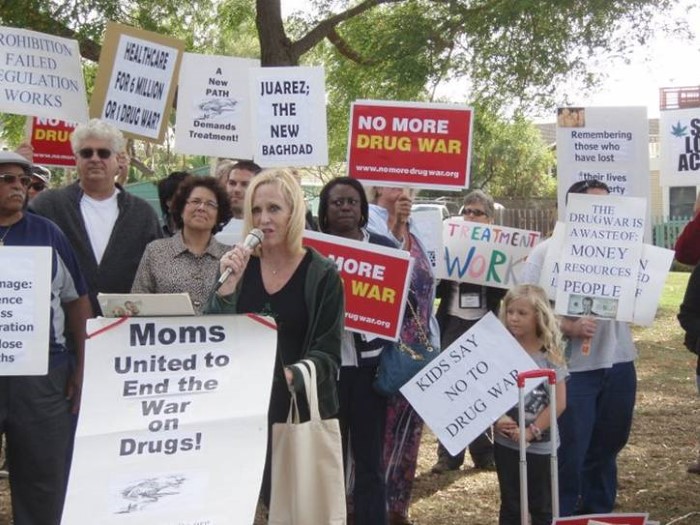
Originally, I wanted to call the group Parents Protest Prohibition, but deferred to others to use the power of the word “Mom.” Although Prop 19 didn’t pass, we felt the potential of the power of Moms United and decided to create a national movement. It is important to understand that this is not a separate organization, but a movement-building project of A New PATH. I created a steering committee by inviting women from Texas, New York, California, Michigan, and Illinois to help develop projects, messaging, growth, etc. I serve as the Lead Organizer and we have developed several annual campaigns such as “Ask Mom How to Save a Life,” increasing access to naloxone in several states, the “Empty Chair at the Holiday Table,” our Moms United Bill of Rights, etc.
This movement has already grown to have representatives in 26 states, as well as Canada and the UK. That is both exciting and daunting.
How much pushback have you experienced from those who disagree with your position?
Of course there are those who don’t agree with our position, but public opinion is changing. I had a woman come up to me recently who said she was working as a criminal justice professional in the early days and she thought that my position was radical then, but she went on to say that we have proven them all wrong and she wanted me to know that.
San Diego, where I live, is a very conservative city. When I wrote my first article (sharing my story and speaking out in favor of treatment instead of incarceration), our local paper refused to publish it; I submitted it to the LA Times and they printed it. I believe that if you meet up with a brick wall, you should simply go around the corner and there may be a door that can be opened there. Our work became known and respected throughout the state before it was recognized locally.
It’s helpful to meet people where they are and bring them along. Sharing my personal stories can be disarming and help people to see things in a different light. Messaging is important when you are dealing with varied audiences.
Our biggest opponents have always been connected to the prison industrial complex.
I believe that parents are the silent majority. They see what is happening in their homes and neighborhoods—they just need permission to take a more open look at the problem and speak out about injustice, to break through the judgment and shame.
Yes, it often feels like pushing a boulder uphill, but I have witnessed change. This is the right thing to do for the future of our children, and that is highly motivating.
What advice does A New PATH offer parents with addicted children? What resources can they turn to?
We tell people that they can love their child despite their behavior, but hate their disease. We don’t preach tough love, but instead advocate for compassion and harm reduction. We feel that parents need to help their kids to get the services they need. We advise them to shake off shame and work for therapeutic treatment opportunities.
We give parents resource information to access treatment and offer a parent survival kit of information about treatment and about navigating the criminal justice system. And we tell parents that their lives matter too and they need to take care of themselves. They need to do what is right for them, as this is a disease that people are dying from. For a person lost in the maze of their addiction, hitting bottom can mean death.
Parents walk a fine line where helping is helpful vs. “enabling,” as the professionals say. This is a very personal issue—having to weigh saving your child’s life vs. setting yourself up for abuse. We let parents know that drugs can be destructive, but so can incarceration, so we never advise them to call the police.
We also tell parents that it is actually therapeutic to speak out. It turns helplessness and hopelessness into empowerment.
For anyone interested in learning more or getting involved, I’d urge you to check out these websites: A New PATH and Moms United. We feature a lot of great information lifted from Safety First drug education as well as the Drug Policy Alliance. We also invite you to join our monthly Moms United conference phone calls and get involved in our national campaign. The Drug Policy Alliance is a great source of information and has been a wonderful partner to our work as well.
How supportive has your family been of your advocacy efforts? How are your boys doing today?
I am remarried to a wonderful and supportive man; he is a retired psychiatrist with a specialty in addiction—we had a lot to talk about when we first met! He is a great life partner.
My sons are proud and supportive of the work I do as well. My older son would say that his mother loves him so much that she started a whole national organization out of love for him! Now in their early 40’s, my boys are both in recovery from heroin addiction, and will continue to grapple with the challenges of this chronic illness throughout their lives. They both have had the courage to give me permission to talk about their lives, so others could benefit.
I am very close to my older son, who has over 13 years in recovery; I treasure our relationship, especially after so many years when he was deep in his disease. He has shared with me stories of surviving accidental overdose and enduring incarceration. He is a drug and alcohol counselor and owns a sober living home. He is not married; I certainly hope that he finds a loving partner, because he is such a nice guy, and of course I would love to have grandchildren.
My younger son is always in my life. It has been a rocky road, but I am always hopeful that, with sustained recovery, we can rebuild the closer more loving relationship we once had. He was married once and is now divorced, no kids. I also hope that he can find love again once he is more stable. He has real skills as a sound engineer, so I am hopeful that he can return to a productive life.
Yes, I am always hopeful for my sons’ futures – I want them to be happy and fulfilled.
What’s next for you?

Gretchen Productions
I stopped teaching dance when I started A New PATH, but I still operate Gretchen Productions, my fashion show production company. My shows include singing, dancing, and modeling, so it’s a wonderful creative outlet.
I plan to continue advocating for sane and humane drug policies. The problem is that there aren’t enough hours in a day. I often say, “Watch out what you wish for,” because what I hadn’t anticipated was how fast our movement would grow.
My husband would like me to retire but I can’t see that happening anytime soon, as this work is so integral to my being. I would like to work less, of course. But, this mission is not one that I can walk away from, despite the considerable challenges. The need for drug policy reform for the sake of our children and future generations continues to push me forward.
Contact Gretchen Burns Bergman at gretanewpath@cox.net and 619-670-1184.
Co-Founder and Executive Director, A New PATH
Lead Organizer, Moms United to End the War on Drugs
Owner and Director, Gretchen Productions
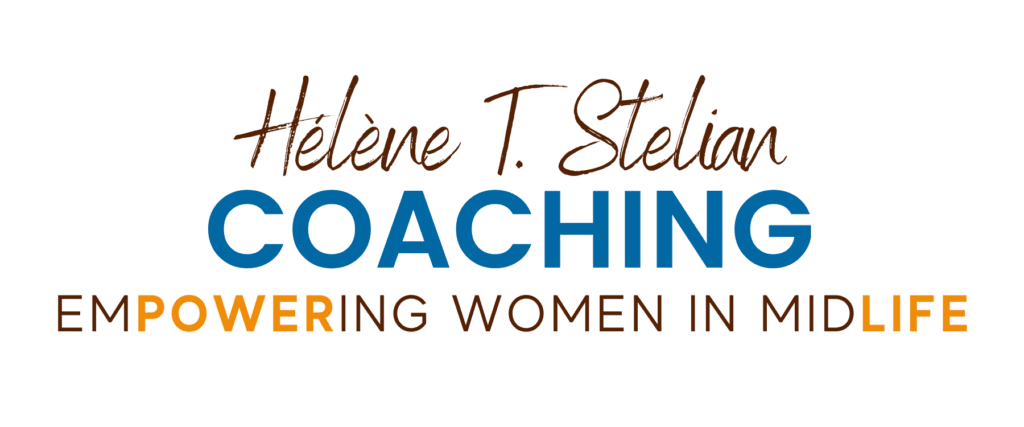
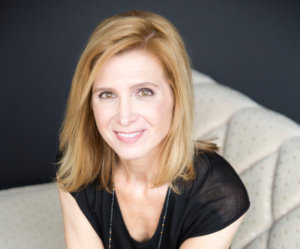
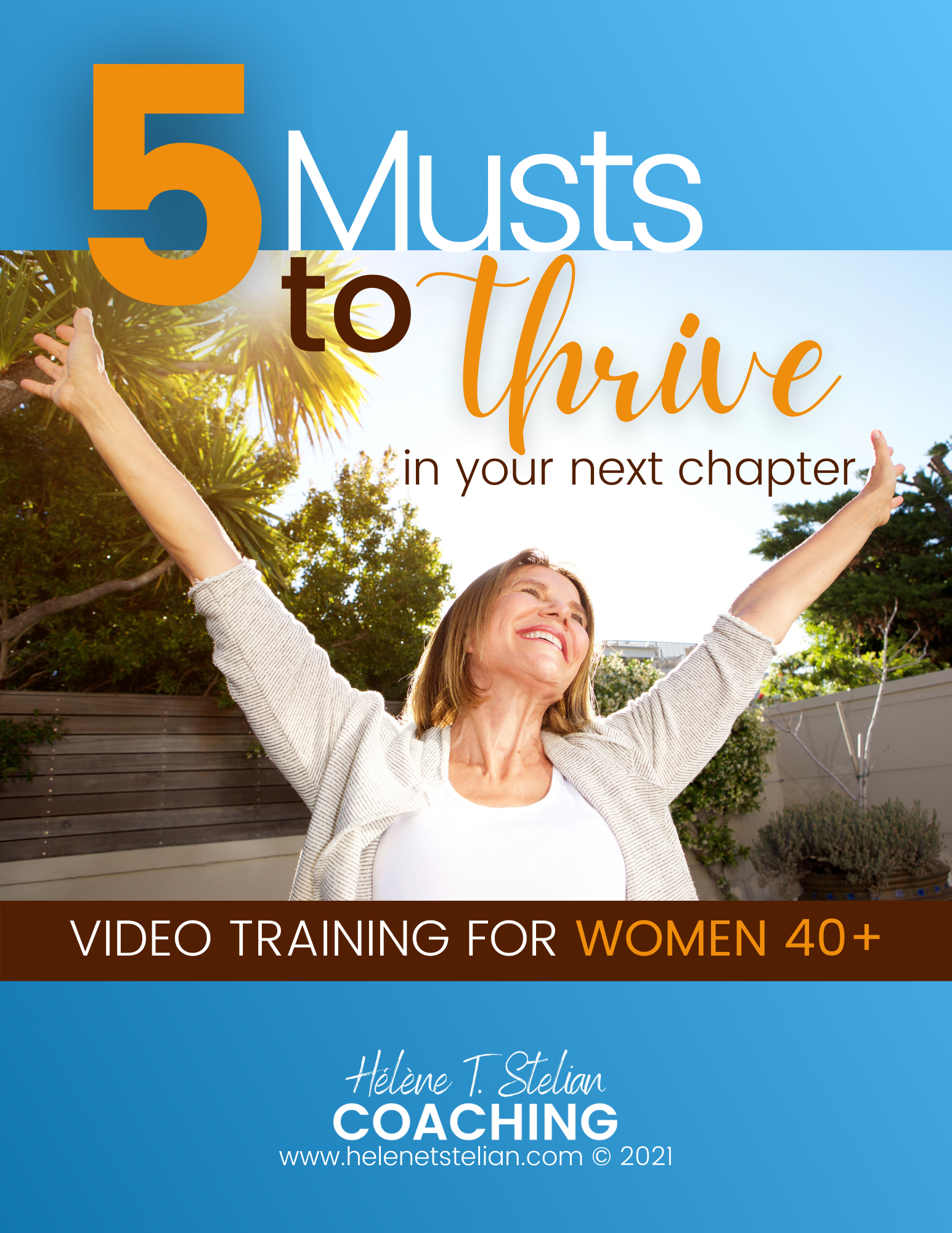



What a courageous woman and brave family. Having lost a beautiful sister to addiction, I am inspired that The Next Path is working to find a better set of solutions. Thank you Gretchen.
Thank you for your response. I’m so sorry to hear about your sister. We are losing too many precious people to this disease. If you would like to be on the mailing list for A New PATH, let me know your address and you can receive our information.
My best to you and your family. Gretchen
Wow! Your story is so inspiring. You are indeed a courageous mother and women. The way you have taken this by its horns and doing everything in your power to make a difference is so inspiring. It’s very unfortunate that countless families face these kinds of difficulties. Continue to be a voice! Best wishes to you and family. #GFEpart2
Thank you for your nice response. Yes, so many families are dealing with a loved one’s addictive disorder and have experienced the stigma and discrimination that is associated with it. We must continue to speak out for a public health approach to addiction! Help us to spread the message. Best, Gretchen
How are your sons right now?
I do agree that unconditional love is one of the best treatments our children could get. After all, when it’s family, there’s no giving up. Ever.
More power to your cause. 🙂
Thank you for asking about my sons. My older son is still doing well. He is in long term recovery and works as an alcohol and drug counselor. My younger son has been in a treatment program for almost six months and it is wonderful to see the transformation! His eyes and mind are clear again. Now he must begin the difficult transition back into his life. Yes, you are so right that he must be surrounded by people who love him. We can not ever give up hope. I appreciate your reaching out. My best to you and your family. Gretchen
I salute your courage and willingness for a change. I hope your sons are well and I’m sorry to hear about your sister.
More power to you!
You’re an inspiration to parents who are in the same place as yours. I’m glad you’re son is doing well now. Thanks a lot for sharing this strong and inspirational words.
Hi Helene, I love your story, in every struggles there’s always way to prevent each problem, thank you for encouragements now I am on my way to stand on my feet again and at this time fix all my mistakes… Thank you so much!
This informative information reminds me to do not ever take any kind of drugs. Lately, I am cigarette user and every stick makes me relax but then after I saw some people suffering the side effect of the cigarette I was scared and i decide to stop even though it’s hard to cease it, but doing it gradually until I completely smoke free…
Thank you Helene…
Every day, the world is continuously battle on drugs but drugs is also still remaining, many parents are afraid about their children that they making friends into the wrong persons and I also experienced that extremely strict concern and I am going about to burnout my felling’s. Nevertheless, I understand at the end.
Moreover, this information is really awesome, all the words is big encouragement.
Thank you!
Great post, thank you for sharing your statistics about drugs.
Thanks for sharing so interesting post.
Is not possible to put all drugs in the same “bag”.
Sure drug addiction is not good but I hope the law can improve so people can use drugs for therapeutic reasons without any problem.
Wow! Your story is so inspiring. You are indeed a courageous mother and women.
Helene, thank you for information!